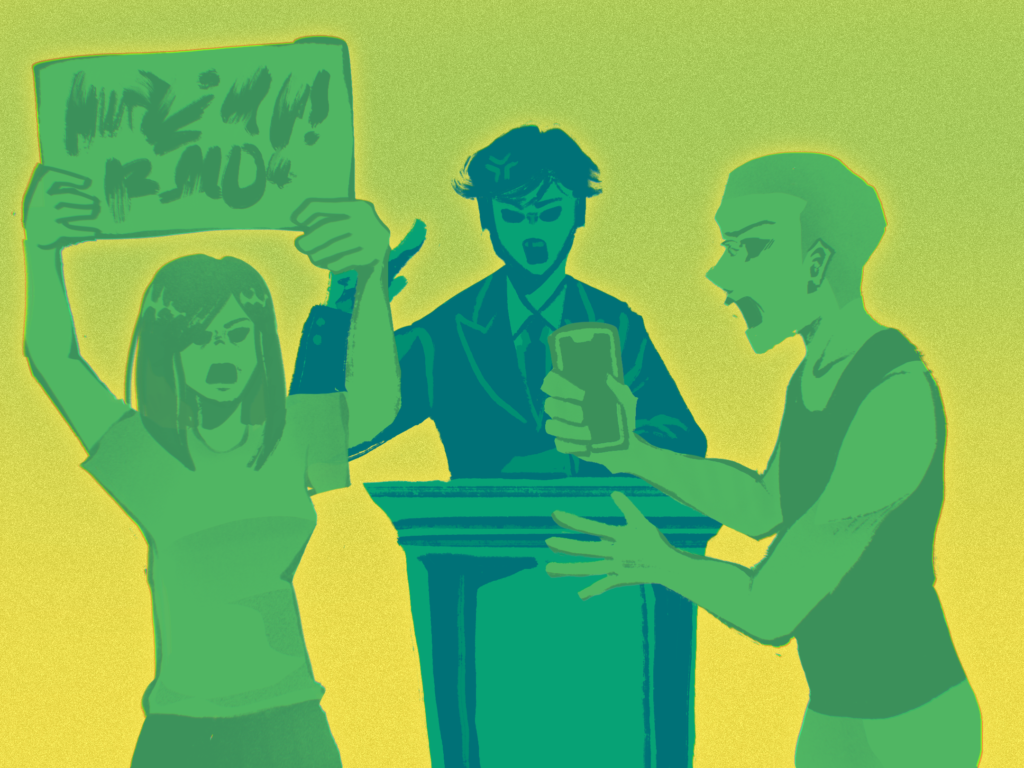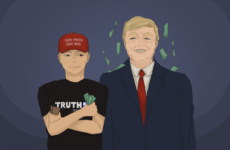
By Harper Marsden-Uren ’26
Earlier this month, South Korean politician Lee Jae-myung was stabbed in the neck by a man asking for his autograph in a near-fatal attack.
After Lee, the leader of the Democratic Party of South Korea and the Democratic party nominee for the South Korean 2022 presidential election, fell to the ground, officials rushed to his side, covering his neck with a cloth and shielding him from the onslaught of people crowding around him. The man who stabbed him, Kim Jin-sung, stated that he intended to assassinate Lee to ensure that he would never become the country’s president.
This is not an unfamiliar story — a crusader for a political cause launches themselves at a politician, believing themself to be a savior of their nation, while political leaders stand at the helm of a social war. The attack on Lee Jae-Myung is not just an attempted assassination; it’s a testimony to political polarization and its draconian hold on the status quo’s political sphere.
Likewise, politics have reached a global breaking point. The ability to disagree has faded into obscurity; the concept of ‘common ground’ is a myth of bygone years. This superiority complex hurts us; if we believe our politics are a dogma, how will we ever incite real change? Lee’s stabbing should be a wake-up call. Polarization and the echo chambers we force ourselves into create nothing but violence and hatred in modern society.
We as a society are more politically divided than ever. Not only do we align ourselves with our partisanship as if they were a peremptory hard-line, but these beliefs are made manifest in our everyday lives. A Pew Research Center study conducted in 2014 found that 38% of Democrats and 43% of Republicans view the opposing party with a “mutual antipathy,” and one-third of both parties view the other as a “threat to the nation’s well-being.” It’s important to note that this was conducted before the Trump presidency, which caused even more enmity than ever before.
What putting ourselves into boxes and finding the opposition as a “threat to the nation’s well-being” does is create political silos, in which we surround ourselves with the rhetoric that we are always right and the opposition is always wrong. This is the foundation of the drastic, harmful measures that are the inherent catalysts behind events like Lee’s attempted assassination or the January 6 insurrection at the Capitol.
This mutual antipathy has been brewing for years; political debates and jabs at the opposition have become fraught with disrespect and hatred. Consider the narrative that President Trump pushed about the legitimacy of President Obama’s United States citizenship, calling his presidential candidacy into question on an episode of NBC’s Today Show in 2011. This blatant disrespect, which he touted frequently during his presidential campaign, set a precedent of discourtesy to the opponent — nothing is off the table. By establishing this barometer for intolerance, Trump’s constituents can feel spurred on by his remarks.
This contempt isn’t reserved for just the opposition; in political debates for the upcoming Republican candidacy for president, petty insults fly through the air, vitriolic and inappropriate. Former presidential candidate Vivek Ramaswamy called Nikki Haley “Dick Cheney in 3-inch heels,” while Donald Trump gloated that Ron DeSantis was “on his knees” for an endorsement. The painting of political opponents as submissive, often grotesque caricatures creates a foundation for their followers to villainize the opposition.
When a 2023 Pew Research Center study asked Americans to describe politics in a single word or phrase, the overwhelming answer was: divisive. It fractures families, erodes friendships, and destroys communities. Politics leaves people exhausted, angry, and hopeless. But this is not the way it has to be. For fear of sounding tedious or self-righteous, let me just say this: by encouraging political discourse in a healthy, positive, and open manner, people can learn that engaging with others across the aisle is the solution to fraught, polarized politics, and quantifiable change can be achieved through compromise. Nothing is dogmatic and everything has a solution if we listen closely enough.




